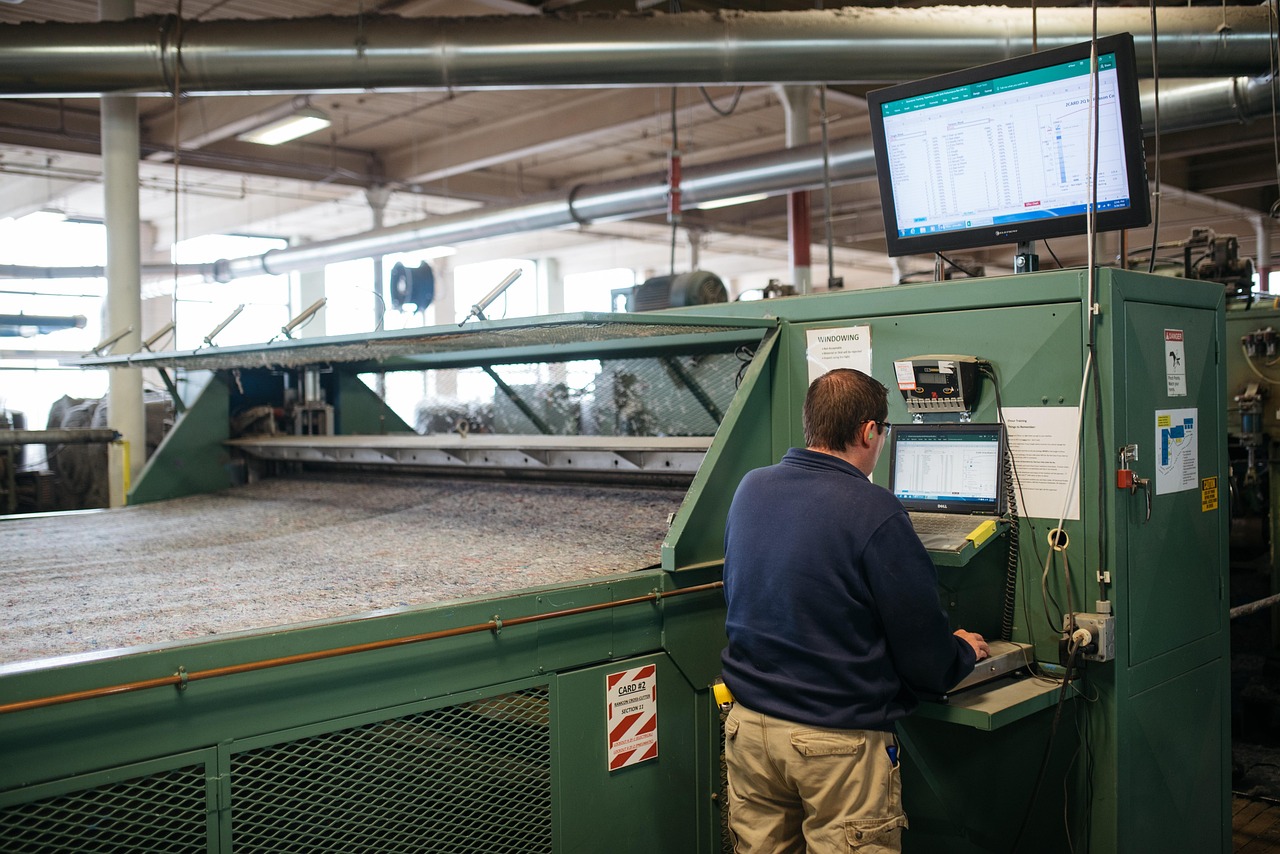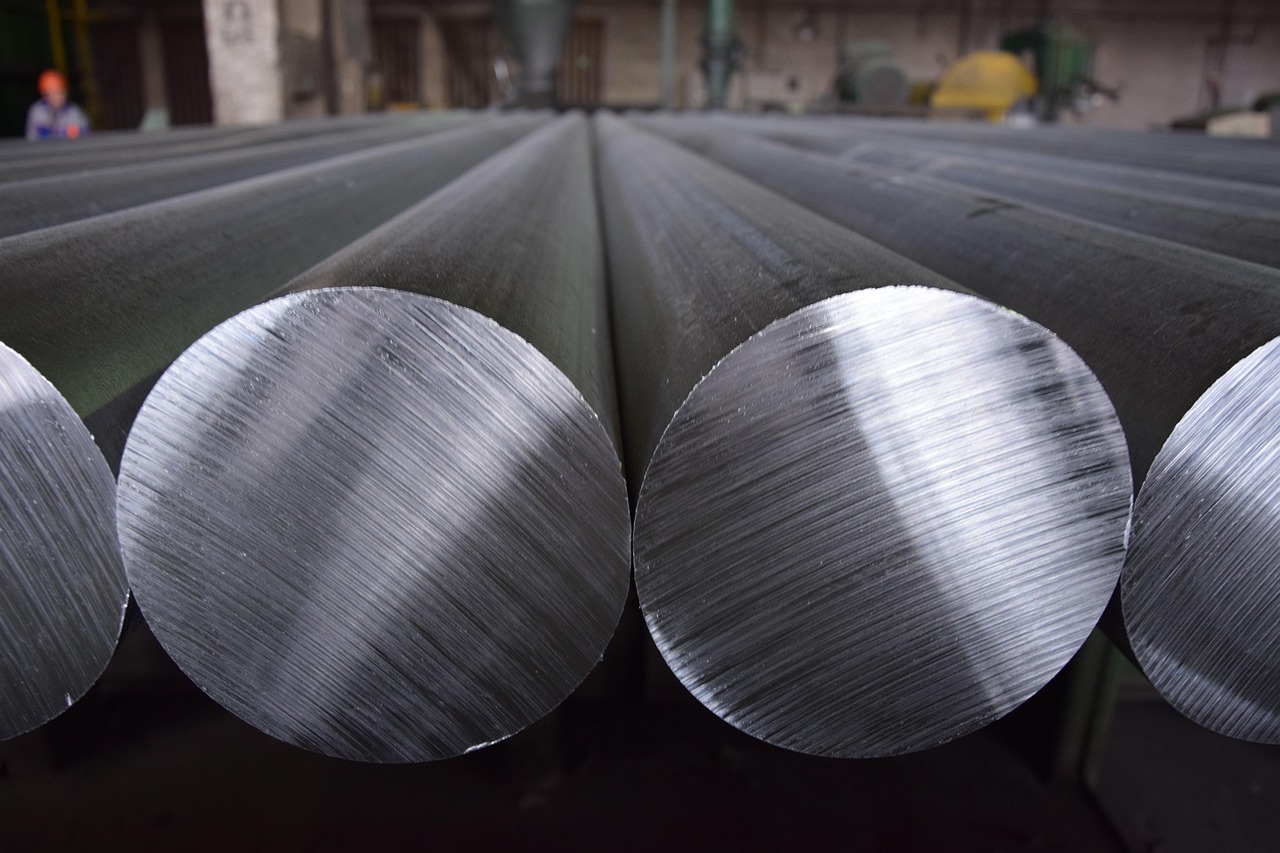Blockchain: The Latest Manufacturing Technology
In recent years, blockchain technology has emerged as a groundbreaking innovation, revolutionizing industries from finance to healthcare. Known for its decentralized, secure, and transparent approach to data management, blockchain has begun making waves in manufacturing—an industry where efficiency, traceability, and trust are critical. Manufacturing processes are becoming increasingly complex, involving multiple stakeholders, global supply chains, and vast amounts of sensitive data. In this landscape, traditional systems often fall short, leading to inefficiencies, data vulnerabilities, and a lack of transparency.
Blockchain’s ability to create a tamper-proof digital ledger offers manufacturing companies a chance to overcome these challenges. Whether it’s tracking raw materials, ensuring ethical sourcing, or automating processes, blockchain has the potential to reshape the industry. Integrating blockchain into manufacturing also aligns with broader technological trends such as Industry 4.0, IoT, and digital twins, making it a critical piece of the innovation puzzle.
This blog explores how blockchain is enhancing manufacturing transparency and efficiency. From its transformative applications to its benefits and challenges, we will delve into why blockchain is poised to become an essential tool for forward-thinking manufacturers.
What is Blockchain and Why Does It Matter for Manufacturing?
At its core, blockchain is a distributed ledger technology that records transactions across multiple computers securely and transparently. Unlike traditional databases controlled by a single entity, blockchain operates on a decentralized network, ensuring that no single party can manipulate the data. This unique structure makes blockchain highly secure and tamper-proof.
For the manufacturing sector, this technology addresses several long-standing issues. Consider the complexity of global supply chains: raw materials and components often pass through multiple hands before reaching their final destination. Along the way, data inconsistencies, fraud, and inefficiencies can arise, leading to delays and financial losses. Blockchain provides a single, immutable source of truth, ensuring that every transaction is accurately recorded and easily accessible to all authorized parties.
Moreover, the manufacturing industry increasingly relies on digital tools and interconnected systems. Data breaches and cyberattacks pose significant risks, especially when sensitive design specifications or production plans are at stake. Blockchain’s cryptographic security features help safeguard this information, ensuring that only authorized users can access or alter it.
In addition to solving practical challenges, blockchain aligns with the goals of Industry 4.0, the current trend of automation and data exchange in manufacturing technologies. By integrating blockchain with IoT devices, artificial intelligence, and other advanced technologies, manufacturers can create more efficient and transparent ecosystems. This not only improves operational efficiency but also builds trust among stakeholders, from suppliers to consumers.
Applications of Blockchain in Manufacturing
Blockchain’s versatility makes it a valuable tool for various manufacturing applications. Here are some key areas where it is making a significant impact:
Supply Chain Transparency
One of the most compelling use cases for blockchain in manufacturing is enhancing supply chain transparency. A blockchain-based supply chain allows manufacturers to trace every component’s journey, from raw material extraction to the final product. Each transaction is recorded on the blockchain, creating a permanent and verifiable record that stakeholders can access in real-time.
For example, a car manufacturer can use blockchain to track the origin of every part used in its vehicles. If a defect is discovered, the manufacturer can quickly identify the source and address the issue, minimizing disruptions. This level of traceability also ensures compliance with regulations and builds trust with consumers who demand ethical and sustainable practices.
Data Security
The manufacturing sector generates vast amounts of data, from design blueprints to production schedules. Protecting this information is critical, as unauthorized access can lead to financial losses and reputational damage. Blockchain’s decentralized nature and cryptographic security measures make it an ideal solution for safeguarding sensitive data.
For instance, manufacturers can use blockchain to securely share design files with suppliers, ensuring that only authorized parties have access. Any changes to the files are recorded on the blockchain, creating a transparent audit trail that reduces the risk of disputes.
Streamlining Operations
Blockchain also streamlines manufacturing operations through the use of smart contracts. These self-executing contracts automatically enforce terms and conditions when predefined criteria are met. In a manufacturing context, smart contracts can automate processes such as payment releases, inventory management, and quality control.
Imagine a scenario where a supplier delivers raw materials to a manufacturer. Once the delivery is verified, a smart contract could automatically release payment to the supplier. This eliminates the need for manual intervention, reducing delays and administrative costs.
Sustainability and Ethical Practices
Sustainability is a growing priority for manufacturers, and blockchain plays a crucial role in verifying ethical practices. By providing a transparent record of material sourcing and production processes, blockchain helps manufacturers demonstrate their commitment to sustainability.
For example, a fashion manufacturer can use blockchain to verify that its textiles are sourced from environmentally friendly suppliers. Consumers can scan a QR code on the product label to view the item’s entire production history, building trust and loyalty.
Benefits in Manufacturing
The adoption of blockchain technology in manufacturing offers numerous benefits, including:
- Enhanced Trust: By providing a transparent and tamper-proof record of transactions, blockchain fosters trust among stakeholders.
- Cost Savings: Automation through smart contracts reduces administrative costs and minimizes errors.
- Improved Collaboration: Blockchain creates a unified platform for all stakeholders, facilitating better communication and coordination.
- Faster Auditing: Regulatory compliance becomes more efficient with blockchain’s easily accessible and verifiable records.
- Resilience Against Cyberattacks: Blockchain’s security features protect critical manufacturing data from unauthorized access.
These benefits not only improve operational efficiency but also position manufacturers to stay competitive in an increasingly digital world.
Challenges and Considerations
Despite its potential, adopting blockchain in manufacturing is not without challenges. Some of the key hurdles include:
- Technical Barriers: Implementation requires significant technical expertise and infrastructure upgrades. Many manufacturers may lack the resources to integrate blockchain with their existing systems.
- Scalability Issues: As the number of transactions increases, blockchain networks can become slower and more expensive to operate.
- Cost of Implementation: The long-term profitability is a draw, but the initial investment can be substantial, particularly for small and medium-sized enterprises.
- Resistance to Change: Traditional manufacturing companies may be hesitant to adopt new technologies, preferring to stick with familiar processes.
To overcome these challenges, manufacturers should start with pilot projects to test blockchain’s feasibility and benefits. Collaborating with technology providers and industry partners can also help ease the transition.
Case Study: Blockchain in Action
Tracing Diamonds with Tracr
A notable example of blockchain’s transformative power in manufacturing comes from the diamond industry. De Beers, a leading diamond company, developed and implemented a blockchain solution called Tracr to enhance traceability and authenticity in its supply chain. This system tracks the journey of each diamond from mine to market, creating a secure and tamper-proof record of its provenance.
Addressing Consumer Demands
One of Tracr’s primary goals is to meet growing consumer demands for transparency and ethical sourcing. By leveraging blockchain, De Beers can provide verifiable proof that its diamonds are conflict-free, adhering to the Kimberley Process Certification Scheme and other ethical standards. Consumers, in turn, can have greater confidence in their purchases, knowing that the product they’re buying aligns with their values. This level of transparency is increasingly becoming a competitive advantage in markets where consumers prioritize sustainability and ethics.
Streamlining Operations
Beyond consumer assurance, Tracr has streamlined several operational processes within the diamond supply chain. Traditionally, verifying a diamond’s provenance involved extensive paperwork and manual cross-referencing. With Tracr, all relevant data is recorded on the blockchain in real time, enabling seamless data sharing among miners, manufacturers, and retailers. This reduces administrative overhead, minimizes errors, and accelerates the flow of information.
Building Trust Across the Ecosystem
Tracr’s success also highlights how blockchain fosters trust among stakeholders. By providing a single source of truth, the platform ensures accountability at every stage of the diamond’s journey. Stakeholders can confidently rely on the data to make informed decisions, from sourcing to final sale. For example, retailers can offer customers detailed insights into a diamond’s history, while manufacturers can optimize their processes based on reliable data inputs.
Lessons for Other Industries
The success of Tracr demonstrates how blockchain can address complex supply chain challenges, ensuring accountability and building trust. Manufacturers in other sectors can draw inspiration from this case study. Whether it’s tracking high-value components, ensuring compliance with stringent regulations, or fostering consumer confidence, blockchain offers a versatile toolkit for innovation. The diamond industry’s adoption of blockchain underscores the technology’s potential to revolutionize traditional practices and deliver value across the entire supply chain.
The Future of Blockchain in Manufacturing Technology
As blockchain technology evolves, its role in manufacturing is expected to expand. Emerging trends include:
- Integration with Digital Twins: Enhancement of digital twins by providing secure and transparent data for simulations and analyses.
- IoT and Blockchain Synergy: Combining IoT devices with blockchain enables real-time data collection and secure sharing across the supply chain.
- Decentralized Manufacturing Ecosystems: Paving the way for decentralized manufacturing, where small-scale producers collaborate using shared digital platforms.
The future of manufacturing lies in creating interconnected and intelligent ecosystems. These unique features make it a critical enabler of this vision, ensuring transparency, security, and efficiency at every stage of the process.
Conclusion
This technology has the potential to drastically change manufacturing. By enhancing supply chain transparency, securing data, and streamlining operations, blockchain addresses many of the industry’s most pressing challenges. While there are hurdles to adoption, the benefits far outweigh the costs, making blockchain a worthwhile investment for manufacturers looking to stay competitive.
As manufacturing continues to embrace digital transformation, blockchain will play an increasingly important role. Now is the time for forward-thinking companies to explore how this technology can enhance their operations and position them for success in the future. The intersection of blockchain and manufacturing is not just about improving processes—it’s about building a more transparent, efficient, and sustainable industry.




